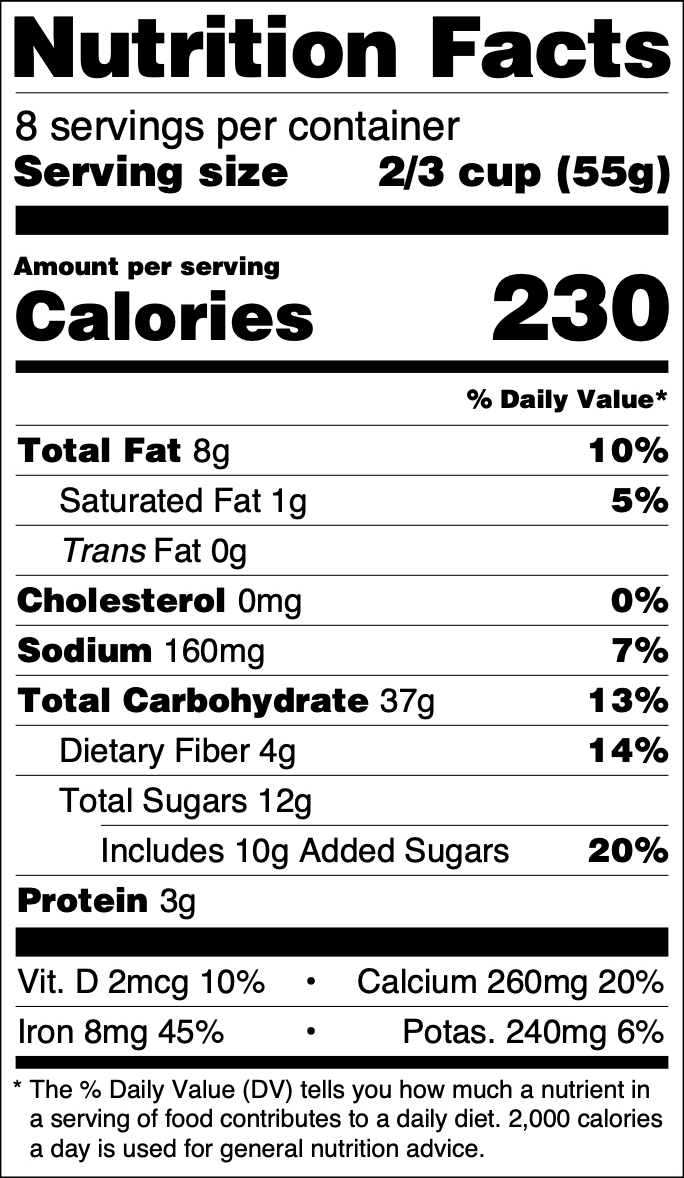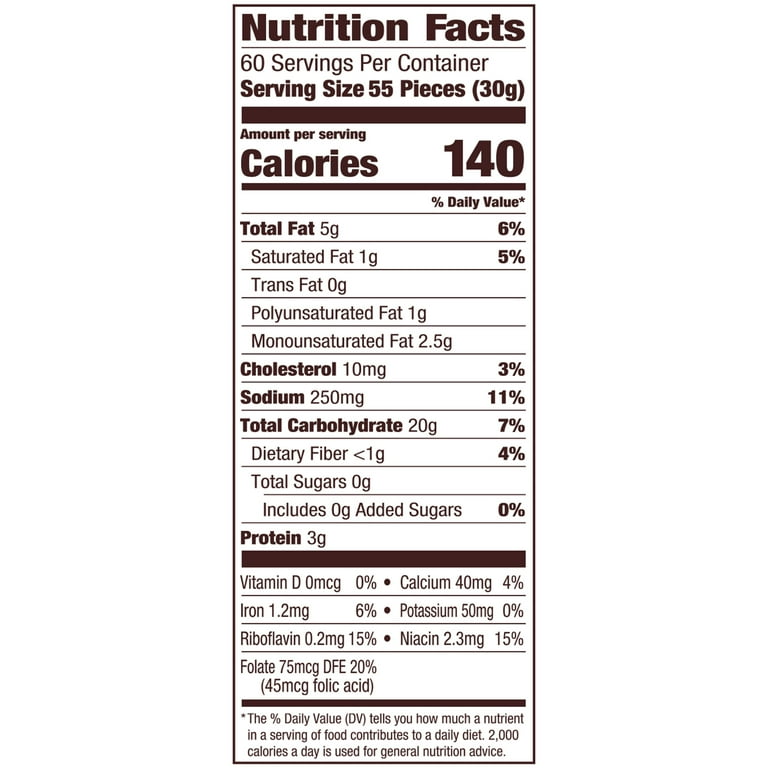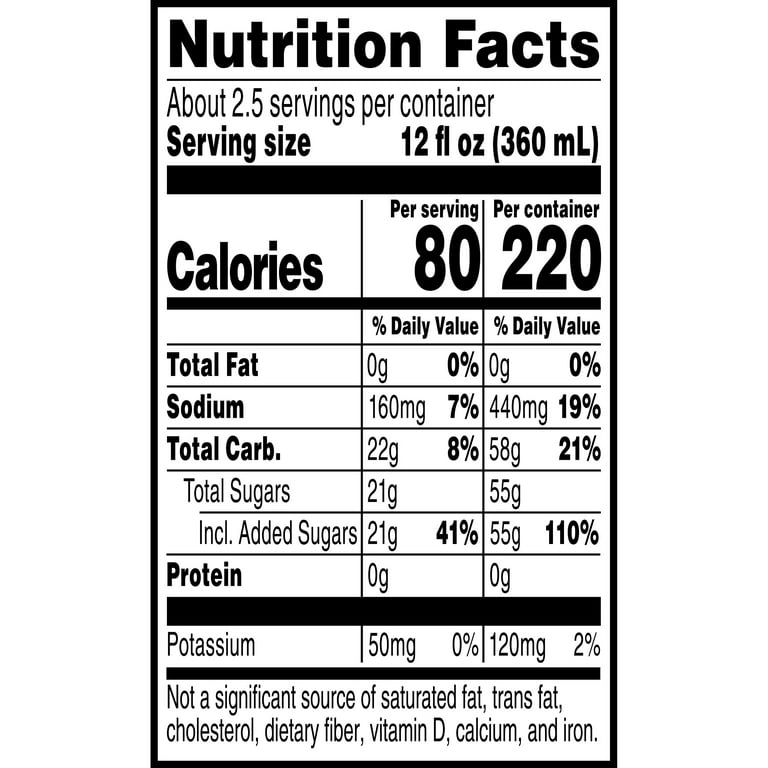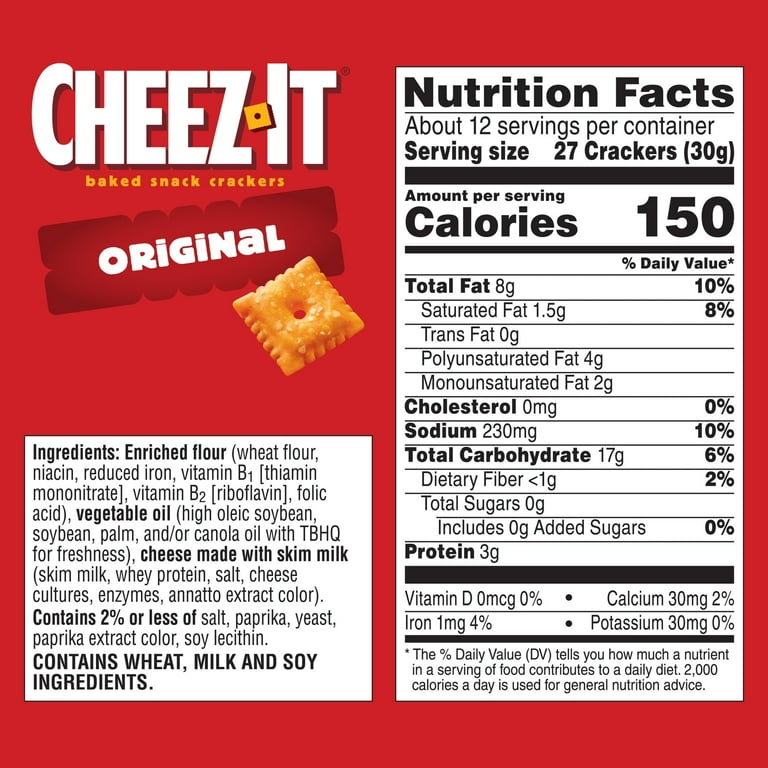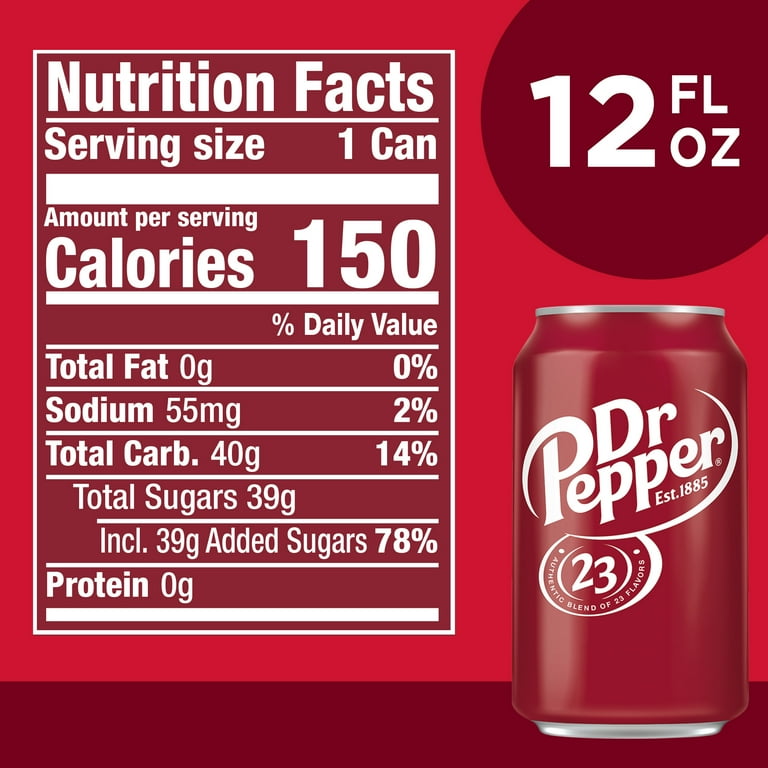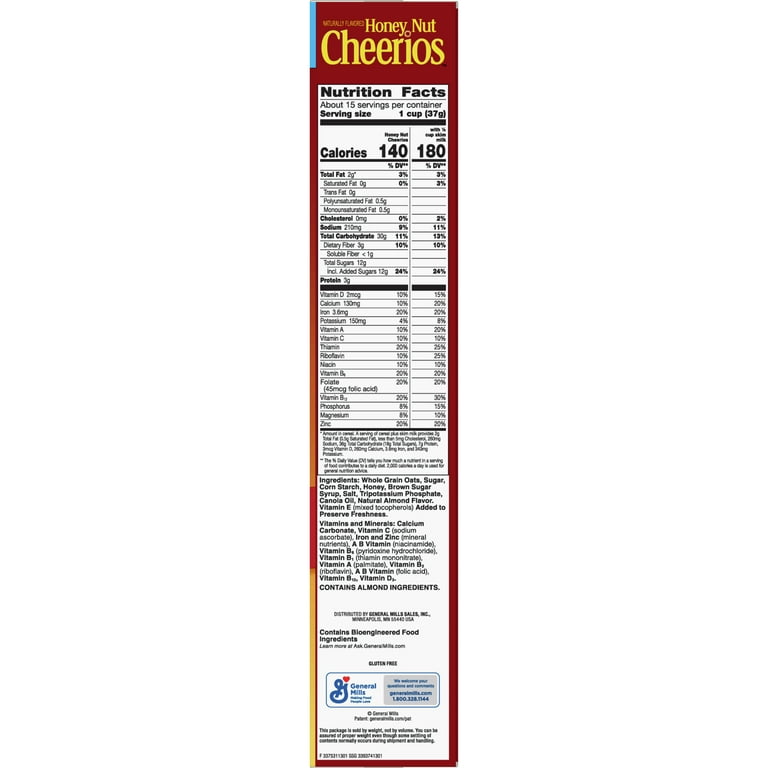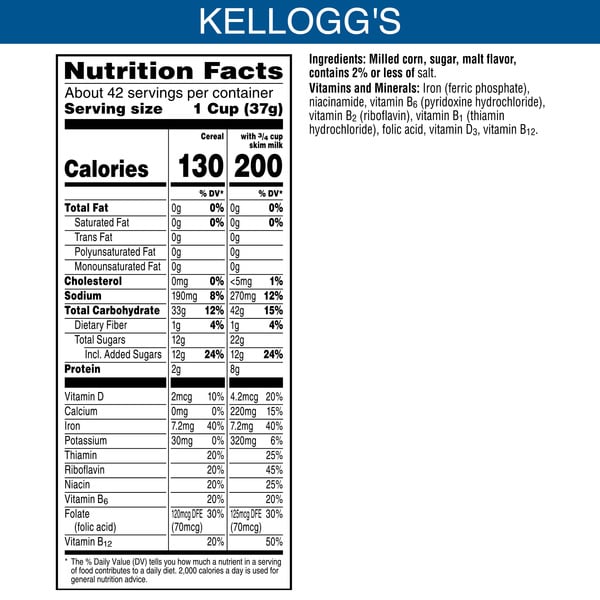Have you ever stood in front of the cereal aisle, cereal box in hand, squinting at the tiny print on the back and wondered, What is all this actually telling me? If Cheerios are your go-to comfort breakfast (guilty as charged over here), the honey nut cheerios nutrition label is an easy place to start making smarter choices without giving up that warm, nostalgic crunch.
Quick Overview
Lets break this down simply: the nutrition label is a snapshot of what youre putting into your bodycalories, carbs, fiber, sugar, protein, fat, vitamins, and minerals. But its more than numbers. Reading the honey nut cheerios nutrition label with a curious, friendly eye helps you decide if it fits your day, your goals, and your tastebuds.
Serving Size
First up: serving size. This is the sneaky partlabels often show nutrition per a measured portion that doesnt always match what we actually eat. For honey nut Cheerios, the serving is typically 1 cup (around 37 grams). Do you eat one cup? Two? Three? Be honest. If you pour two cups, double those numbers. Thats why I always suggest measuring the first few times to get a feel for your usual portion.
Calories and Energy
The calorie count gives you energy context. Honey nut Cheerios usually land in the 140160 calorie range per cup. If youre pairing them with milk, add those calories too. Its not about calorie policingrather, its about understanding what fuels you. Are you having this as a quick snack, a carb boost before a morning run, or as the base of a more balanced meal? Your goals change what that number means.
Carbohydrates, Fiber, and Sugar
Carbs are the headline act for most cereals. Honey nut Cheerios contain a decent amount of carbohydratesmainly from whole grain oats and, yes, some added sugars. Heres the delicate balance:
-Fiber: Cheerios usually offer around 3 grams of fiber per serving. Not a powerhouse, but helpful. Fiber is that silent hero that aids digestion and helps you feel fuller longer.
-Sugar: Because these are honey nut flavored, expect added sugaroften around 812 grams per serving. It gives the cereal its enjoyable sweet note, but its worth keeping in mind if youre watching sugar intake.
Think of fiber as the friend who helps the sugar not overstay its welcome. If you want to even things out, try adding a tablespoon of chia or ground flax for a fiber bump and a little texture contrast.
Protein and Fat
Protein in most breakfast cereals is modest; honey nut Cheerios typically have about 23 grams per serving. Pairing your bowl with milk (or a higher-protein plant milk) or tossing in a handful of nuts can elevate the protein and make your breakfast more satisfying.
Fat is low in these cereals, mostly unsaturated, and keeps the overall calorie count reasonable. If you like the creaminess of fat in the morning, a spoonful of nut butter on top can be a delicious upgrade.
Vitamins and Minerals
One of the real perks of many breakfast cereals is fortification. Honey nut Cheerios often come fortified with iron, B vitamins, and sometimes vitamin D. Thats great for filling nutritional gapsespecially if youre busy and dont always get a perfectly balanced meal.
But, a quick word: fortification helps, but it doesnt replace whole-food nutrients. A piece of fruit alongside your cereal still offers phytonutrients and fiber that a vitamin pill cant mimic.
Ingredients: The Story Behind the Label
Lists of ingredients can feel like a foreign language, but they tell the story of whats actually in your breakfast. Honey nut Cheerios often include whole grain oats at the top, sugar or honey, and small amounts of oil, salt, and natural flavors. Less familiar? Dont panicsome ingredients are there in minute amounts to preserve freshness or texture.
If you care about processed foods and want to minimize them, its worth learning to read labels for added sugars, oils, and long ingredient lists. For more on that broader topic, I found a helpful resource exploring processed foods that you might like to check out: Processed foods.
Sugar: How Much Is Too Much?
Sugar is the big debate. The occasional sweet treat? Totally fine. The problem is when sugar sneaks into multiple parts of your dayyogurt, cereal, coffee drinks, snacksand you wind up consuming far more than intended. The American Heart Association recommends limiting added sugars to about 25 grams per day for women and 36 grams for men. One bowl of honey nut Cheerios can use up a chunk of that allotment.
Heres a friendly tip: if you love the sweet crunch, try mixing half a serving of honey nut Cheerios with half a serving of plain, unsweetened oats or plain Cheerios. You keep the flavor you enjoy while cutting sugar and stretching the calories further. Little swaps like that feel empowering, not restrictive.
Who Should Be Cautious?
This cereal can fit many lifestyles, but some folks should be a bit more mindful:
-Children: Kids love sweet cereals, but because theyre small, the ratio of sugar to calorie matters more. Pairing cereal with protein-rich milk and fruit can balance things out.
-People managing blood sugar: If youre watching blood glucose, look at total carbs and consider swapping to lower-sugar options or combining with protein and fiber to blunt spikes.
-Those tracking sodium: While generally not high, sodium adds up if other foods in your diet are salty.
Smart Ways to Enjoy Honey Nut Cheerios
You dont have to abandon something you love to eat healthier. Here are a few practical, tasty ideas:
-Make it a bowl upgrade. Add fresh berries, a sprinkle of cinnamon, and a spoonful of Greek yogurt for extra protein and flavor.
-Trail mix twist. Combine a small handful with nuts, seeds, and dried fruit for a portable snack that feels indulgent but has staying power.
-Crunchy topping. Use honey nut Cheerios as a crunchy topping on baked apples or yogurt parfaits for a fun texture boost.
Comparisons and Alternatives
If youre curious how honey nut Cheerios compare to other cereals, the main difference usually lies in sugar and fiber. Plain whole-grain cereals tend to have less sugar and more options for adding your own natural sweetness (banana slices, for example). If you want the honey flavor but less sugar, try mixing sweetened and unsweetened cereals or using natural sweeteners sparingly.
Practical Tips for Reading Any Nutrition Label
Before we wrap up, let me share a quick checklist I use when checking any cereal labelsimple, practical, and no-nonsense:
-Check the serving size first. Is it what you actually eat?
-Look at the sugar and fiber togetherboth matter.
-See if the first ingredient is a whole grain (thats a win).
-Note added vitamins and minerals, especially if you rely on them regularly.
-Scan the ingredient list for long, hard-to-pronounce additives if you prefer simpler foods.
Final Thoughts
If honey nut Cheerios are your cozy morning companion, they can absolutely be part of a balanced diet. The key is awareness: know whats in your bowl, pair it thoughtfully, and make small swaps when you want to cut sugar or boost protein. Food is supposed to be joyful, not a battlegroundso let curiosity, not guilt, guide you.
What do you thinkwill you measure your next bowl, try mixing cereals, or add a boost of fruit and nuts? Share your favorite cereal hacks with meI'd love to hear what works for you. And if you want more practical reads on the broader impacts of processed foods and how to spot them, that linked resource above is a friendly next stop.
FAQs
How many calories are in Honey Nut Cheerios?
A one-cup serving (approximately 37 grams) of Honey Nut Cheerios contains about 140-160 calories.
How much sugar is in Honey Nut Cheerios?
Honey Nut Cheerios contains around 8-12 grams of added sugar per one-cup serving.
What is the serving size for Honey Nut Cheerios?
The standard serving size listed on the Honey Nut Cheerios nutrition label is 1 cup, which weighs about 37 grams.
Are Honey Nut Cheerios a good source of fiber?
They provide around 3 grams of fiber per serving, which is a modest contribution towards the daily recommended intake.
Are Honey Nut Cheerios fortified with vitamins?
Yes, Honey Nut Cheerios are often fortified with essential vitamins and minerals like iron, B vitamins, and sometimes vitamin D.






